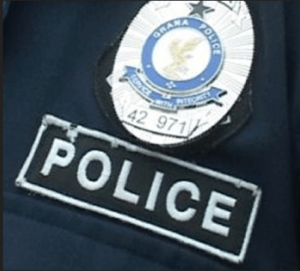Ghana Police bans journalists from taking close range crime scene photos
 Protocols, under a new police transformation agenda, bans Journalists from taking or airing close range pictures at accident or crime scenes, Assistant Commissioner of Police (ACP), Mr David Senanu Eklu, Director General, police public Affairs has said.
Protocols, under a new police transformation agenda, bans Journalists from taking or airing close range pictures at accident or crime scenes, Assistant Commissioner of Police (ACP), Mr David Senanu Eklu, Director General, police public Affairs has said.
Additionally, the police will not allow media coverage of police operations such as identification parades and swoops, he emphasized, whiles also cautioning the police to, on no account, release such pictures to the media.
Mr Eklu, speaking at a Police-Ghana Journalist Association (GJA) media engagement in Kumasi on Thursday, said it is important media personnel adhered to ethical norms by ensuring that the gory faces or bodies of dead accident victims or even criminals, does not show in the public domain.
This will be a way of respecting their rights to human dignity whiles being careful not to hurt the traditional cultures, sensibilities and emotions of the families that they belonged to.
He told the gathering, made up of Senior Journalists from the print, radio and television, that under the new agenda, the police are using the protocols, to seek a stronger partnership with the media to tap its advantage as a channel which can aid the police in its function of providing security, crime detection and prevention.
“The media can also be an important channel through which the public can express opinions of how the police can function better, “since you are the mirror that reflects the corporate image of our organization and how society sees us”.
Mr Eklu said the police are also implementing the agenda under which the journalist will be given special protection in line of duty, whiles also fostering a mutually-beneficial police-media relationship that will help each party understand and respect each other’s job better to avoid ethical breaches and conflicts.
In line with this, he said, crime reporting will be factored into the curricula of all police training schools to ensure that media relations are woven into the very fabric of policing from the scratch.
Mr Kingsley Hope, Ashanti Regional Chairman of the GJA, decried cases of police brutalities against journalists and hoped that things will change under the new arrangement.
Source: GNA
